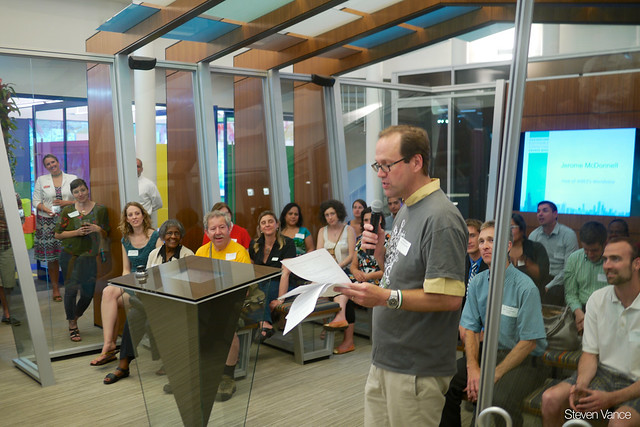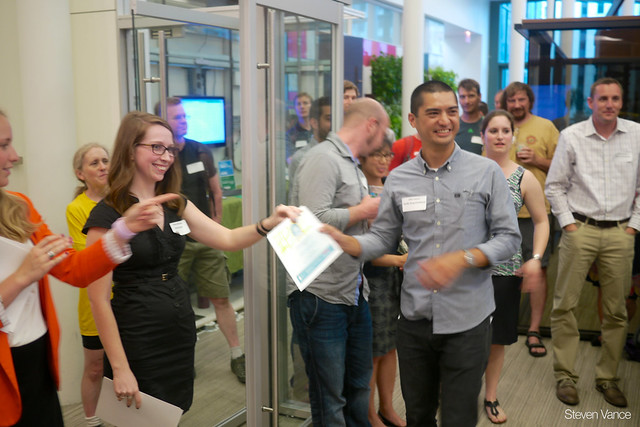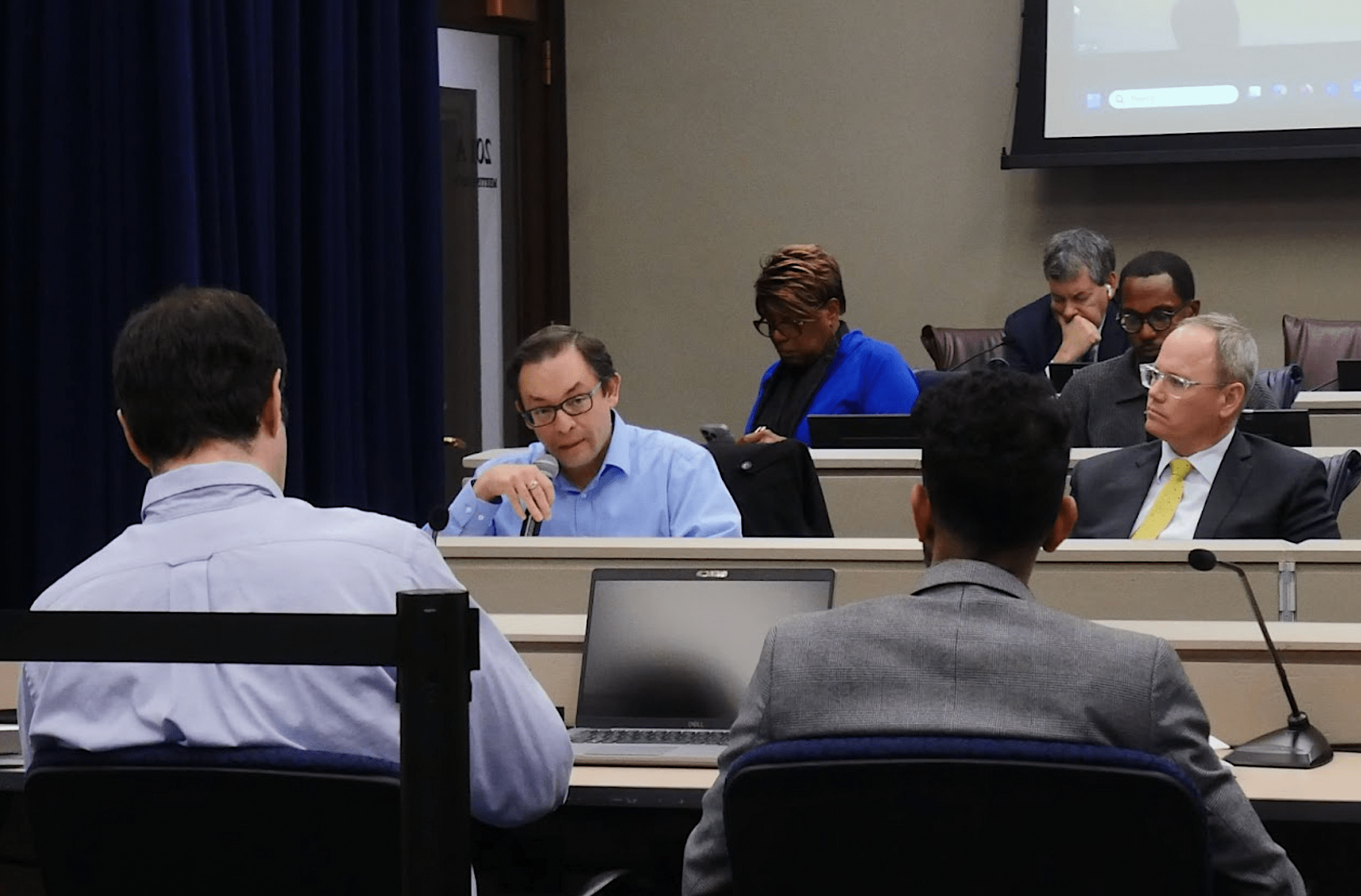The "Commuter Challenge" is an annual competition held in many cities, in which companies compete to get the most employees to bike commute during Bike to Work Week in June. It's a good opportunity to start converting people who are "interested but concerned" about biking for transportation into regular bike commuters: Workplaces host events on how to do it, team leaders at each office answer any questions, and some companies even reward employees with cash. The competition is basically a fun way to raise awareness about how bicycling to work is a viable option for many people.
Brian Morrissey, who runs the program in Chicagoland for Active Transportation Alliance, invited me to the Commuter Challenge Bash two weeks ago, where the awards were presented by WBEZ Worldview host Jerome McDonnell. Morrissey said that there were fewer teams and riders and less total mileage this year compared to last year. However, those riders made more trips than ever, suggesting the workers who did bike to work this year stuck with it more than the participants last year.
Morrissey said this was to be expected, since the Commuter Challenge website asked participants to do a little more this year. Though the website got more complicated, it also collected better data:
Last year’s platform just asked users to input the total miles of their trip, whereas this year the distance was measured between two self-reported locations. The increase in trips shows that part of our program is working well. We obviously need to work on making the site more user friendly...
Morrissey said that Upshot Marketing had "the biggest upset win." They ended Burke Group's longstanding stranglehold on the top spot in their category, all the more impressive since, according to Morrissey, Burke Group "pays everyone who rides (year round) 75 cents per mile." That wasn't the only upset. Studio Gang Architects "crushed it" and set the bar high for future events. Their team hit 100 percent participation -- everyone in the company biked for at least part of their commute all five days of Bike to Work Week. That is "incredible for any team with more than 25 employees," Morrissey said. "Even [Active Trans] couldn’t do it."
Studio Gang team leader John Castro said that the firm's principal, Jeanne Gang, told the entire office at a meeting, "You have no excuse not to ride your bike to work." Castro said some of his co-workers needed an extra push:
[Some staff] would get off at a CTA stop early and then we'd meet them with a bike and ride with them to the office. Not everyone is comfortable riding in the streets. There was playful resistance from people who don't usually ride bikes. For some people, it's faster for them to walk to the office. The push from Jeanne was helpful.
Another thing that's different about this year's Commuter Challenge is that it's tracking trips to work all year long and, in an effort to reduce driving to work, offering prizes every month, through the Regional Transportation Authority's Drive Less, Live More campaign. July's rewards consist of a 10-ride ticket on the Chicago Water Taxi, two Divvy bike-share annual memberships, and four tickets to a White Sox game.
If your organization doesn't yet compete in the Commuter Challenge, it can sign up next year. To see whether your organization competes, check out this year's list.






